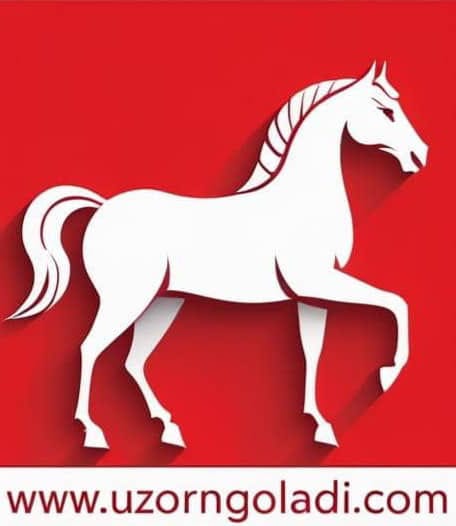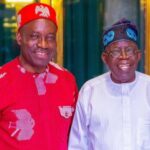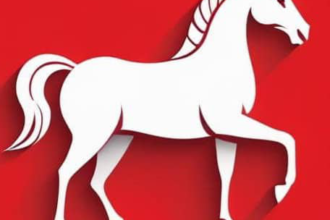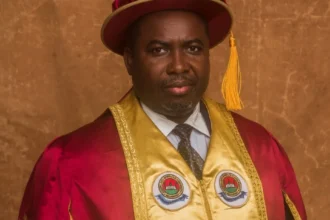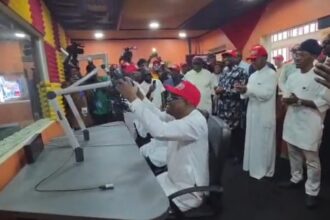
Director-General of the World Trade Organization (WTO), Dr. Ngozi Okonjo-Iweala, has strongly denied authoring a viral social media post circulating across multiple platforms that allegedly criticised President Bola Ahmed Tinubu’s handling of Nigeria’s security challenges.
In a statement released via her verified X (formerly Twitter) handle on Saturday, the globally respected economist dismissed the circulating message as “false” and “malicious,” warning the public to beware of fake content being spread in her name.
“Beware, this story going around on WhatsApp, Instagram, and Facebook is false! We are taking action! The person who did this could not even spell my name,” she wrote.
Related posts:
- No Christian Genocide in Northern Nigeria, Says African Union Chief
- President Trump orders Pentagon to prepare for possible military action in Nigeria over Christian genocide
- Valentine Ozigbo writes Tinubu over insecurity, terrorism
- Wike Denies Presidential Ambition, Declares Support for Tinubu’s 2027 Re-election
Dr. Okonjo-Iweala further disclosed that her office was taking legal steps against the perpetrators behind the impersonation and urged Nigerians to verify the authenticity of information before sharing or believing it.
The fake post, which has been widely shared on WhatsApp groups, Facebook pages, and Instagram feeds, was titled “Trump didn’t ‘hit’ us – our leaders did.” It falsely attributed to Okonjo-Iweala a series of statements allegedly criticising the Tinubu administration’s response to Nigeria’s worsening insecurity.
In the fabricated message, the WTO chief was quoted as accusing Nigerian leaders of “prioritising rhetoric over decisive action against banditry and insurgency.” The post also falsely claimed she advised President Tinubu to “stop the damage control speeches and secure the people.”
The message, which appeared to reference recent remarks by former U.S. President Donald Trump about religious persecution in Nigeria, went viral within hours, sparking outrage and confusion on social media.
Dr. Okonjo-Iweala, however, categorically disowned the post, describing it as the handiwork of “scammers and mischief makers” attempting to exploit her reputation for credibility and influence.
“Whichever coward did this should write the message in their own name and not hide behind mine or anyone else’s! Scammers and 419ers, stop!” she declared in a follow-up tweet.
Her clarification quickly garnered widespread attention, with thousands of users retweeting and commending her for speaking out.
This is not the first time Dr. Okonjo-Iweala has been a target of fake news or impersonation on social media. Since assuming leadership at the WTO in 2021, she has frequently had to debunk false quotes, doctored images, and fabricated policy statements attributed to her.
Observers say her global stature as a respected economist, reformer, and former Nigerian Finance Minister makes her a frequent target for misinformation aimed at lending legitimacy to political propaganda or controversial narratives.
Digital rights experts have warned that such impersonations not only damage reputations but also erode public trust in authentic communication.
“When high-profile figures like Dr. Okonjo-Iweala are misquoted, it distorts public discourse,” said Dr. Olumide Akintayo, a digital communication analyst. “People tend to believe falsehoods when they appear to come from credible personalities. That’s why verification is critical.”
The controversy over the fake Okonjo-Iweala post emerged amid renewed international debate about religious and ethnic violence in Nigeria, following statements by former U.S. President Donald Trump.
On his Truth Social platform, Trump had claimed that “Christianity is facing an existential threat in Nigeria,” and warned that the United States “cannot stand by while such atrocities are happening.” He said America was “ready, willing, and able to save our great Christian population around the world.”
The remarks reignited global scrutiny of Nigeria’s human rights and security situation, with U.S. Senator Ted Cruz and other Republican lawmakers calling for Nigeria to be redesignated as a Country of Particular Concern (CPC) for alleged violations of religious freedom.
The Nigerian government, however, swiftly rejected the allegations. In a statement issued by presidential spokesperson Ajuri Ngelale, President Tinubu reaffirmed that Nigeria’s Constitution guarantees freedom of religion and that his administration remains committed to promoting peaceful coexistence among all faiths.
“Nigeria is not a religiously intolerant nation. Religious tolerance has been a core tenet of our collective identity and shall always remain so,” Tinubu said in a post shared on his verified X handle.
He also assured that the federal government continues to work closely with the United States and other international partners to enhance understanding, promote dialogue, and safeguard all communities, regardless of faith.
Dr. Okonjo-Iweala’s swift clarification was widely praised by Nigerians who condemned the spread of misinformation. Many social media users applauded her for addressing the falsehood directly rather than allowing it to fester.
“Thank you for clearing the air, ma. People are too quick to believe anything they read online,” one user commented.
“It’s shameful how people use the names of respected figures for cheap political propaganda,” another added.
The WTO chief’s post also prompted calls for stronger action against online impersonation and fake news in Nigeria. Legal analysts noted that while the Cybercrimes (Prohibition, Prevention, etc.) Act of 2015 criminalizes identity theft and misinformation, enforcement remains weak.
“The law exists, but the will to enforce it is inconsistent,” said Barrister Kemi Osagie, a Lagos-based legal practitioner. “High-profile victims like Dr. Okonjo-Iweala should press charges to set an example and deter future offenders.”
Nigeria’s political climate, still charged after a contentious 2023 general election, has seen a surge in online misinformation targeting public officials, journalists, and institutions. Experts warn that the combination of high political tension, low digital literacy, and the rapid spread of content on social platforms has created fertile ground for fake news.
According to the Centre for Democracy and Development (CDD), more than 40% of political posts shared during the last election cycle were either misleading or outright false. The trend, the organization warns, poses a serious threat to democratic accountability and informed public debate.
“Fake news isn’t just a nuisance; it’s a weapon,” said Idayat Hassan, a senior fellow at CDD. “When you use someone like Okonjo-Iweala’s name to legitimize false political narratives, you are eroding public confidence in both the truth and the institutions that depend on it.”
As Director-General of the WTO, Dr. Okonjo-Iweala has consistently emphasized integrity, transparency, and accountability—values that have defined her decades-long career in international development and governance.
Her latest encounter with fake news underscores the vulnerability of even the most reputable figures to digital manipulation, and the urgent need for individuals to exercise responsibility when sharing information.
In her concluding message, Okonjo-Iweala reiterated her commitment to truth and transparency, urging the public to help combat misinformation by verifying sources before believing or spreading content.
“We live in an era of fake news. Let’s all be vigilant,” she wrote. “If something sounds sensational or too convenient, check the source. Don’t allow scammers to pollute public discourse.”
For many Nigerians, the incident serves as a reminder of the importance of digital responsibility and critical thinking in an age of viral misinformation. As the line between fact and fiction continues to blur online, credible voices like Dr. Okonjo-Iweala’s are calling for a renewed culture of truthfulness, ethics, and civic awareness.
Her clear, firm response not only protected her reputation but also reaffirmed a broader message about the power of truth in a time of manipulation.
In the words of one X user reacting to her post:
“In a country drowning in fake news, Dr. Okonjo-Iweala just gave a masterclass on how to stand for the truth.”

